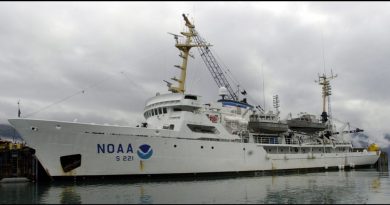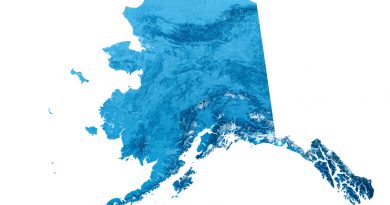COVID, climate & the impact on science – Arctic news roundup 2020 with Mia Bennett
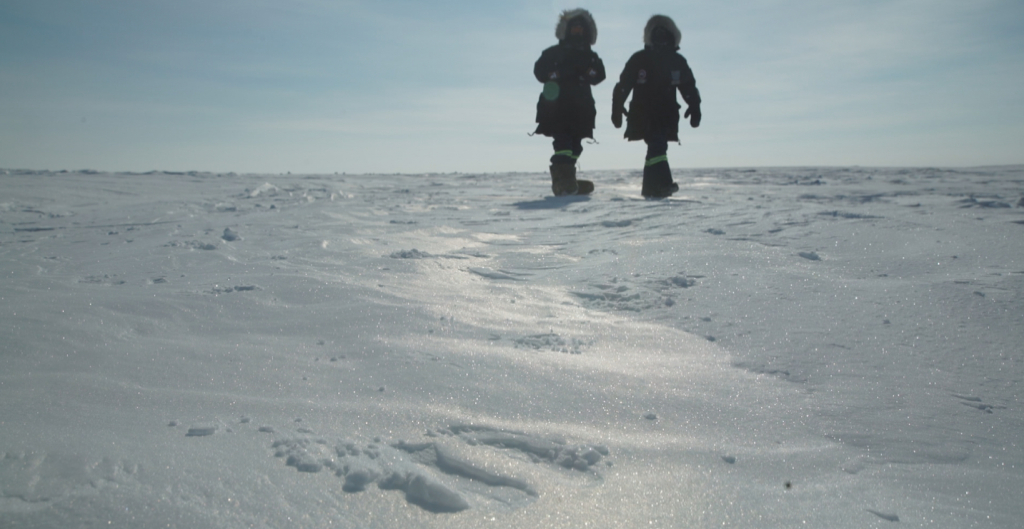
The end of the year is often a time to take stock and here at Eye on the Arctic, we’re no different.
In our 2020 edition of our annual Arctic news roundup, we’ve checked in with Arctic experts from around the world who’ve contributed their blogs to Eye on the Arctic/Regard sur l’Arctique.
In the first installment of this year’s series, we speak to Mia Bennett who runs the Cryopolitics Arctic news and analysis website.
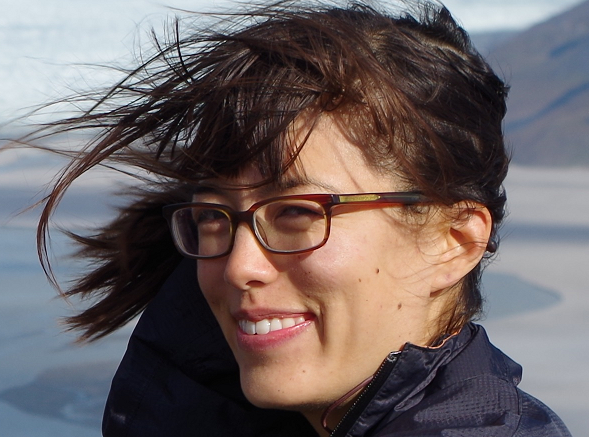
- Eye on the Arctic: COVID-19 and the pandemic dominated headlines, Arctic and otherwise, around the world in 2020. What impacts will the pandemic have on the Arctic in the months to come?
Mia Bennett: In terms of the negative effects, I think the scientific community is going to be facing real and discernible gaps in the records that they have to observe Arctic climate change. Satellites can only do so much. Scientists also need to go in the field to take measurements themselves and be able to talk to people who are living in the Arctic about what they’re seeing day-to-day.
Also, scientists aren’t able to do simple things like go and take an SD card out of a camera that’s taking time lapse photography of a glacier .
I think without those kinds of records and observations for at least one year, and who knows, maybe longer in some places across the Arctic, there’s certainly going to be less of an ability to accurately estimate and forecast climate change. That will undoubtedly have a long-term impact on research and understanding of the environment more broadly.
But I do think there will also be some positive things coming out of this, and that’s embracing local participation in research. It would be a smart move because it would enable scientists to build more resilient research networks and also meaningfully include local indigenous people in the actual research whether it’s gathering data, making these measurements that are currently missing and just better incorporating local knowledge and training the local people to be the next generation of scientists.
But to do that requires good internet connections. Something lacking in much of the Arctic. So I would like to see much more investment made in internet and broadband services as a result of the pandemic.
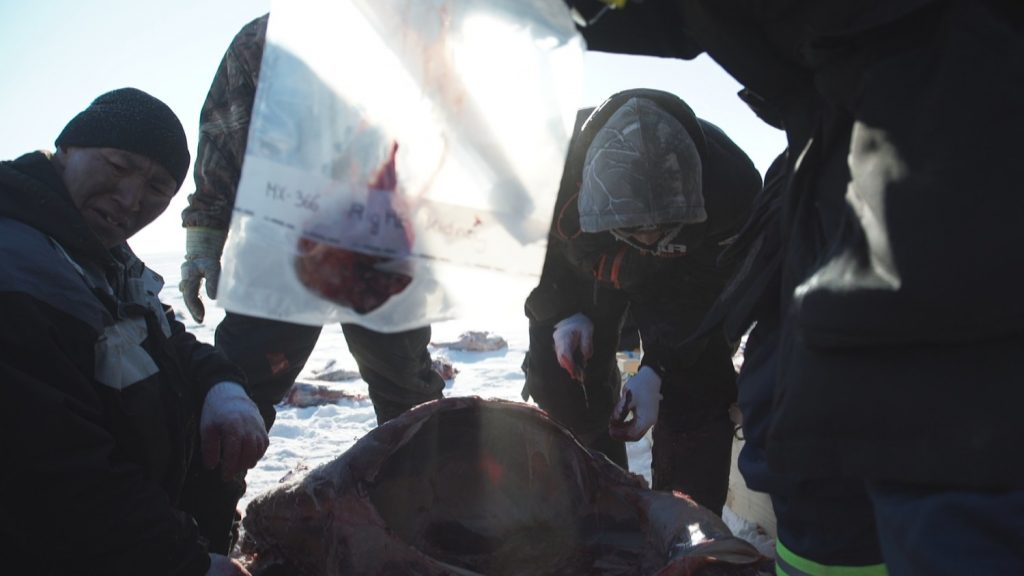
2. The administration of U.S. President Donald Trump was a wildcard in terms of Arctic politics over the last four years. What will you be watching for from the Biden administration in terms of the Arctic?
The Trump administration did bring a strange kind of lens to the Arctic, especially when he said he wanted to buy Greenland. That suddenly put the Arctic on everyone’s radar, although not in the most productive manner.
Biden has said that on day one he’s going to rejoin the Paris agreement. I think we’ll see a recommitment in the immediate term to combating climate change. Also, some leases are due to come up for sale in ANWR just before his inauguration and so maybe we’ll also see some quick movement to halt those leases in offshore Alaska.
In the long term, I think we’ll see a recommitment to science-based policy.
But Biden’s going to have a lot on his plate foreign policy-wise so I don’t see the Arctic rising immediately as a very high priority, but I do think climate change in general will be one, so maybe within that we can see attention to the Arctic under his administration.
3. What two Arctic stories or issues do you feel got pushed into the background in 2020 and shouldn’t have been?
First, Arctic communities handled COVID pretty well. And I would say that on a circumpolar scale too. Very quickly, communities in Alaska for instance, closed down and stopped access from the outside. There were still cases in the Arctic but the rates were lower in nearly all the Arctic regions than the respective national rates. It’s a success story and noteworthy given that Indigenous and Arctic communities have a really tragic history with pandemics, especially with airborne viruses, so the fact that they’ve been able to handle this pandemic in a way that has prevented the same sort of mass death and tragedies is really commendable.
I think it’s something that merits more attention and understanding because we could probably learn lessons from the Arctic that would translate to other regions.
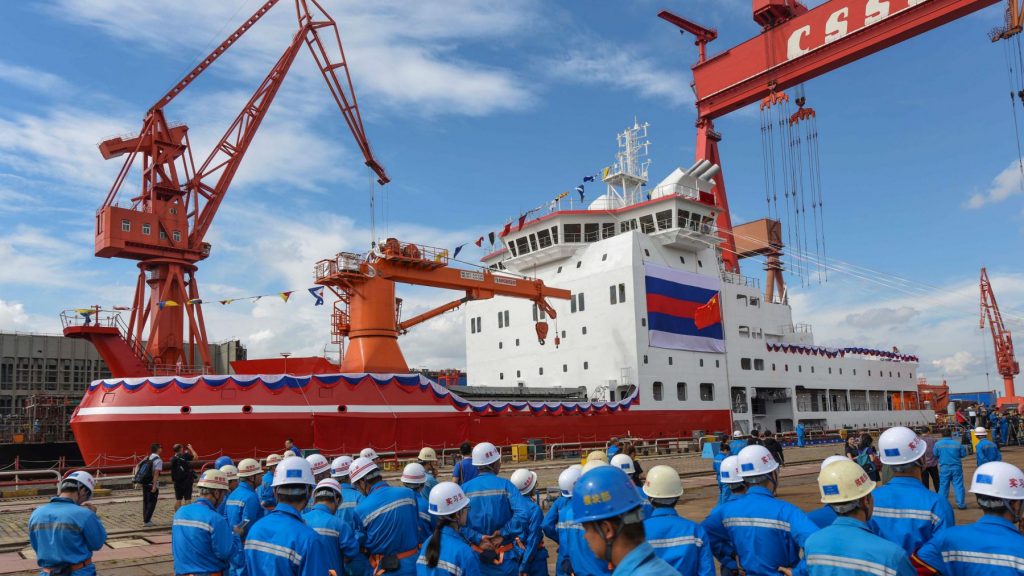
Second, the first Arctic voyage of China’s Xue Long 2 icebreaker this year is something I really felt flew under the radar. It was in September, so maybe people were preoccupied with the U.S. election, but I was surprised how little it was talked about. When China’s Arctic White Paper came out in 2018 there was so much talk about a new cold war and suspicion about China’s northern ambitions in western media. But with the icebreaker, which honestly was a much more visual and symbolic expedition, it really didn’t get much attention.
4. What Arctic stories or issues will you be closely following in 2021?
Internationally, Russia’s upcoming Arctic Council chairmanship will definitely be something to keep our eyes on. It’s probably going to be a sea change from current chair Iceland whose chairmanship is up in May. Iceland has generally prioritized issues that face the entire circumpolar North, things like people and communities, the arctic marine environment, climate , and a stronger Arctic Council. Russia’s Arctic ambassador signaled Russia will highlight environmental protection and sustainable development in an interview with the Arctic Council, but notably, he didn’t mention climate change so I think we may see more of an inward, nationally focused chairmanship.
But the main thing I’m hoping for from the Arctic Council ministerial is a cooling of heads compared to Rovaniemi when Pompeo made his bombastic speech.
One thing to also watch, is what happens to Arctic tourism. Before the pandemic, Arctic tourism was a hot topic. Every Arctic region was trying to find a way to tap into this low barrier to entry industry. But the pandemic really threw all of that in the air. One of Britain’s cruise lines has already said it’s not going to have Alaska cruises until 2022. So if cruising doesn’t go ahead this summer that could be a huge economic blow. An then on the feeder side of tourism, I don’t see Asian outbound tourism to the Arctic picking up for a while, and it may take years.
The above Q&A has been edited and abridged.
Write to Eilís Quinn at eilis.quinn(at)cbc.ca
Other links in our 2020 Arctic year in review series:
- The pandemic, the economy & international policy – Arctic news roundup 2020 with Heather Exner-Pirot (Published December 28)
- Canada, the HFO ban & great power competition in the North – Arctic news roundup 2020 with Mathieu Landriault (Published December 31)
- Education, environment & Russia in the spotlight – Arctic news roundup 2020 with Marc Lanteigne (Published January 1)


